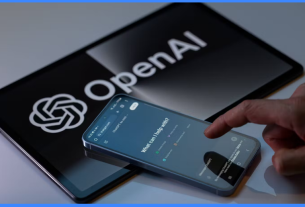Off the rugged coastline of Iceland, five fishing vessels are part of a project to test a state-of-the-art machine for capturing information about the catch of the day. A first of its kind, the initiative aims to help meet the need for more detailed data on the state of our seas.
‘We’re living in a time of technology where everything is being scanned and registered in a database, but as far as I know it’s the first time for wild fish,’ said Axel Freyr Gíslason, head of product development at Skaginn 3X, developer of the scanning machine featuring computers and cameras. The Iceland-based company is part of the EU-funded SEASCANN project.
Protecting marine ecosystems around the world is an increasingly pressing issue, which has been given new impetus by international sustainability and biodiversity goals agreed at the United Nations Biodiversity Conference (COP15) in Montreal, Canada, in December 2022.
On the one hand, the sea is a vital source of food for people and fishing is an economic activity that supports many coastal communities around Europe and the world. On the other hand, these resources are being widely overexploited and there is a real risk that certain species numbers could collapse or ecosystems be irreversibly damaged.
Clearer picture
Although some progress has been made since the reform of the EU Fisheries Policy in 2013, overfishing is a persistent threat, particularly in the Mediterranean and Black Sea. Added to this are concerns about pollution and overall ecosystem health.
“
Everything is being scanned and registered.
Run-off of chemicals and fertilisers from agricultural land, in particular, has led in certain areas to excessive nutrients in the water. This in turn has resulted in algae overgrowth that depletes oxygen levels and suffocates other marine life.
Gaining an accurate overview of all the factors that go into building a healthy marine ecosystem is vital. It is also challenging. This is where scientific knowledge has a crucial part to play: high-quality information is key to understanding the state of play and what actions will be the most effective in restoring ocean health.
The EU is supporting a variety of research projects aimed at harnessing new technologies to increase both the quality and the quantity of information available to scientists and policy makers.
Broader scope
Another such project is EcoScope, which started from the principle that every aspect of the marine ecosystem is interconnected. To date, efforts to preserve fish stocks have typically focused on managing species one by one, often placing a catch limit on a particular fish species if its numbers are too low.
EcoScope aims to establish a more comprehensive approach to fisheries management by tracking the health of the ecosystem as a whole.
The project involves 18 countries. Its partners include universities, research institutions, non-governmental organisations and tech companies. The EcoScope team is mapping a range of factors that can affect the health of fisheries, including changes to the environment, the status of other species and the impact of human activity.
The information collated is being made available through a single interoperable online platform that is also open to the general public.
Hobbyist-friendly focus
The depth and scope of the information available will make the database as interesting to fishers, scuba divers and surfers as to researchers and policy makers. It will, for instance, combine centralised statistical and research data with real-time information on topics of public interest such as wave height, heatwaves or local marine flora and fauna.
The platform also has an educational role. The EcoScope Academy will include online courses, webinars and educational games for students, young scientists and policy makers.
The first chapter of the online advanced course, an introduction to ecosystem-based fisheries management, is already available online. The Eastern Mediterranean version of the Maritime Spatial Planning simulation platform, which will incorporate scenario testing, will be ready in late 2023.
‘If you’re a young scientist struggling to access data, you’ll be able to download all the information you need, for free, to put to use in experiments and research,’ said project coordinator Professor Athanassios Tsikliras, a marine biologist at the Aristotle University of Thessaloniki.
Citizen reporters
One aspect of EcoScope seeks to harness the power of citizen science through a smartphone application.
The EcoScope app will allow people to report on concerns relating to the marine environment. Reports will be transferred directly to local authorities or the relevant port police, with GPS location, pictures and details depending on the incident.
Overall the information collated and mapped out by the project will provide an important resource to all those involved with the sea.
‘I feel very optimistic about the impact this project can have because, for a long time, lack of data has been an excuse for lack of action,’ said Tsikliras. ‘This excuse will not be there anymore.’
Making fisheries-related data available also supports the objectives of the Horizon Europe Mission to Restore our Ocean and Waters by 2030. To meet the Mission’s goals, advanced systems are needed to better monitor, forecast and evaluate the health of the aquatic system as a whole.
Precision data
“
For a long time, lack of data has been an excuse for lack of action.
New technology also has a vital role in gathering accurate information at source. SEASCANN’s testing of the first fully automatic grading system off the coast of Iceland is a case in point.
Fish pass through the SEASCANN machine, which makes a digital record of their size, colour, quality and species. It sends the information in real-time to the onboard crew as well as onshore for analysis by fishery teams and organisations that monitor fishing activities.
The precision automation offered by SEASCANN is a world away from the conventional time-consuming task of manually sorting through fishing nets and takes fishing traceability to new levels.
The technology relies on machine learning, developed over several years spent teaching the system to recognise different species. Because the equipment is located on the deck of a boat, battling the elements, other technical challenges had to be addressed.
‘Most of the components – the computers, high-definition cameras and other items – are not designed to work in a densely humidified and highly saline atmosphere,’ said Gíslason. ‘We’ve had to think outside the box to find ways to overcome the elements, to develop technology that recognises the fish in all conditions.’
By investing in new technologies and data tools, projects like SEASCANN and EcoScope hope to give decision makers the knowledge they need to design policies that foster greater ecosystem-based management.
As a result, these initiatives improve the chances of maintaining the delicate balance between food security and a healthy ocean well into the future.
Research in this article was funded by the EU. If you liked this article, please consider sharing it on social media.



